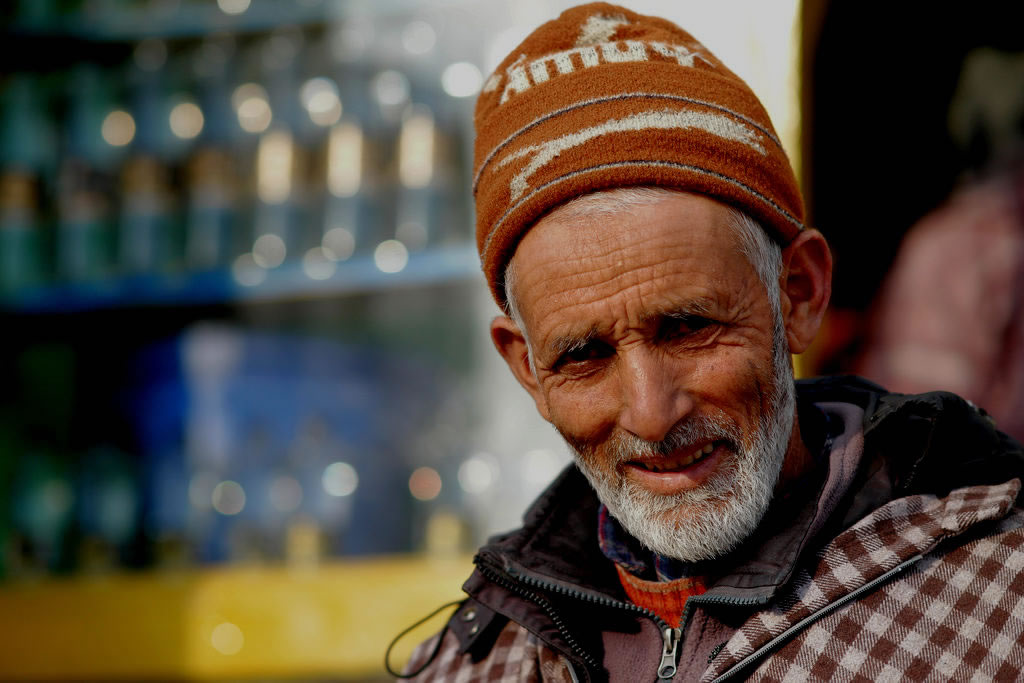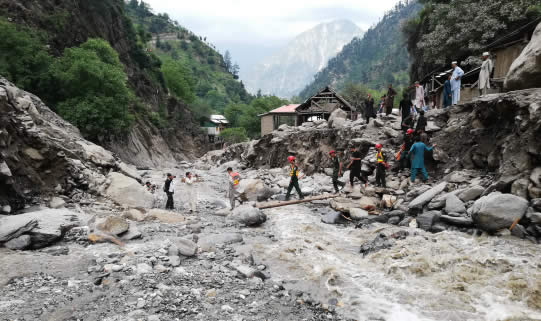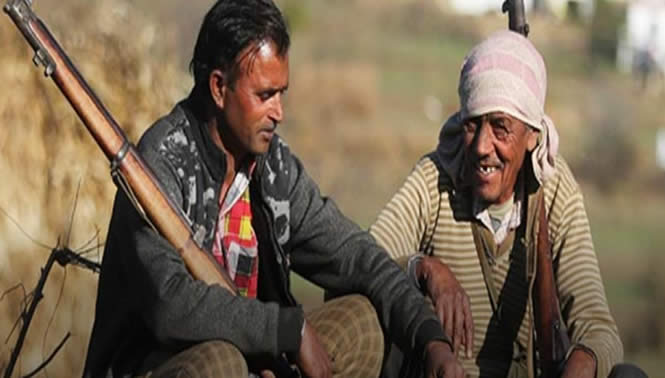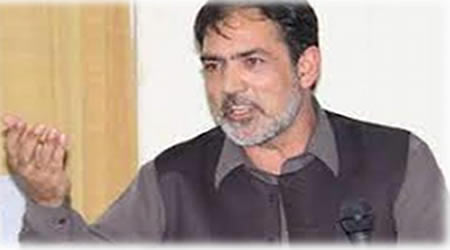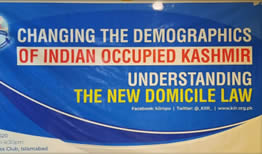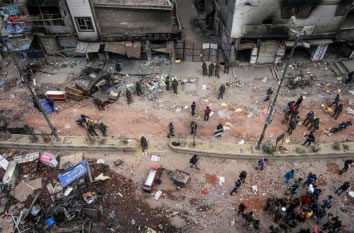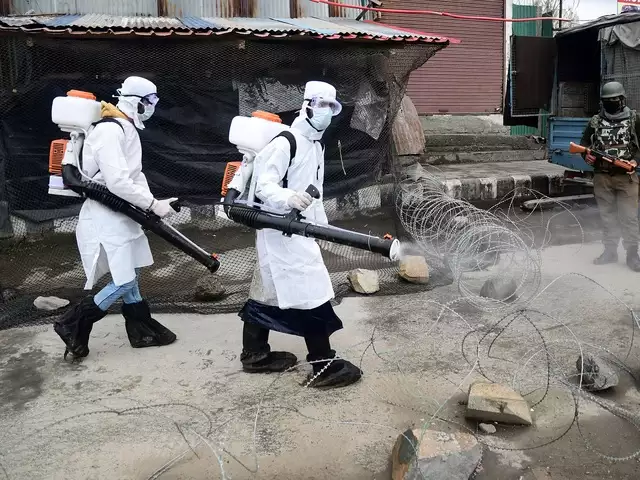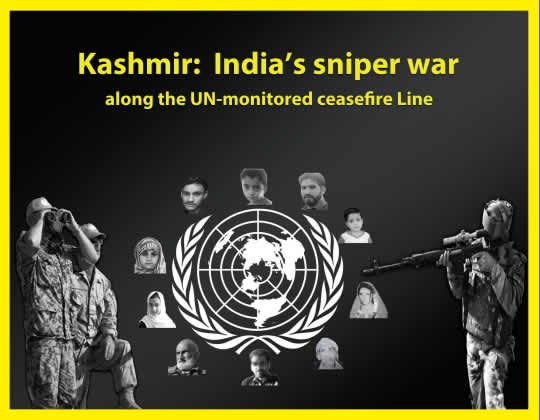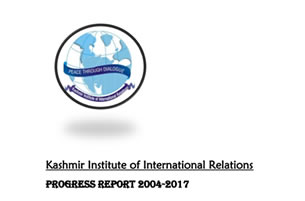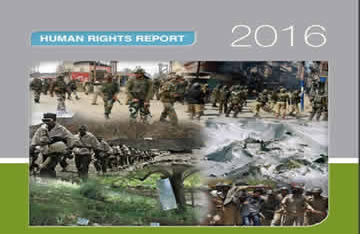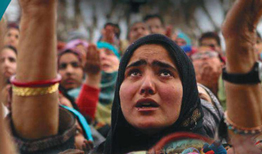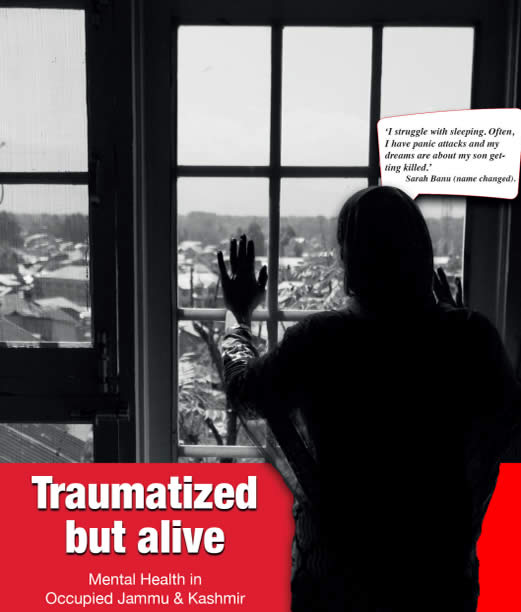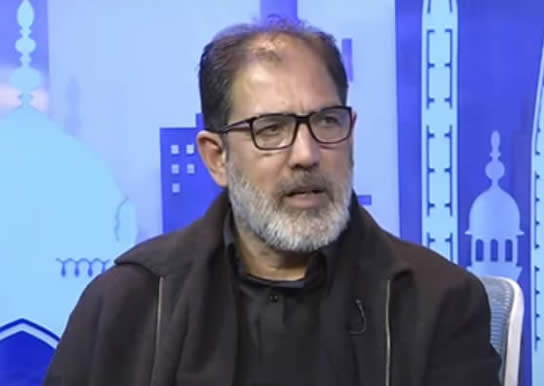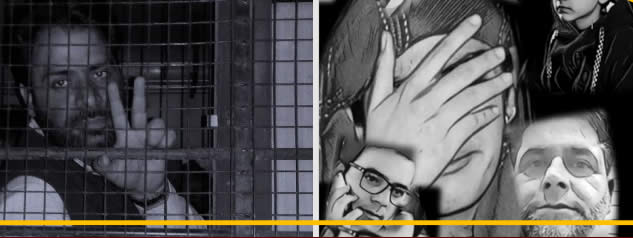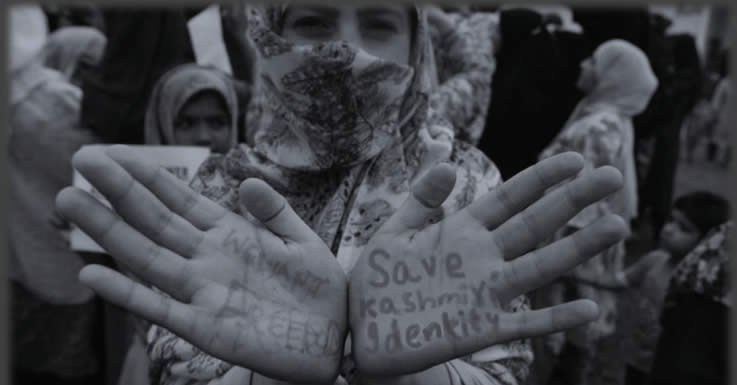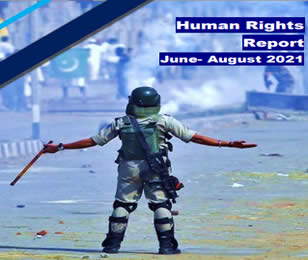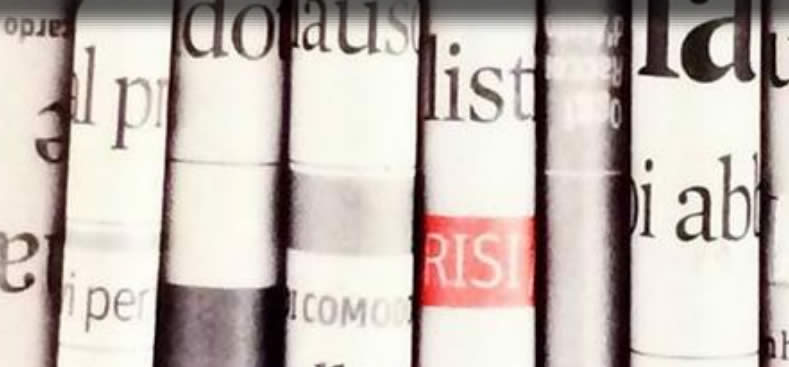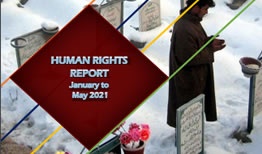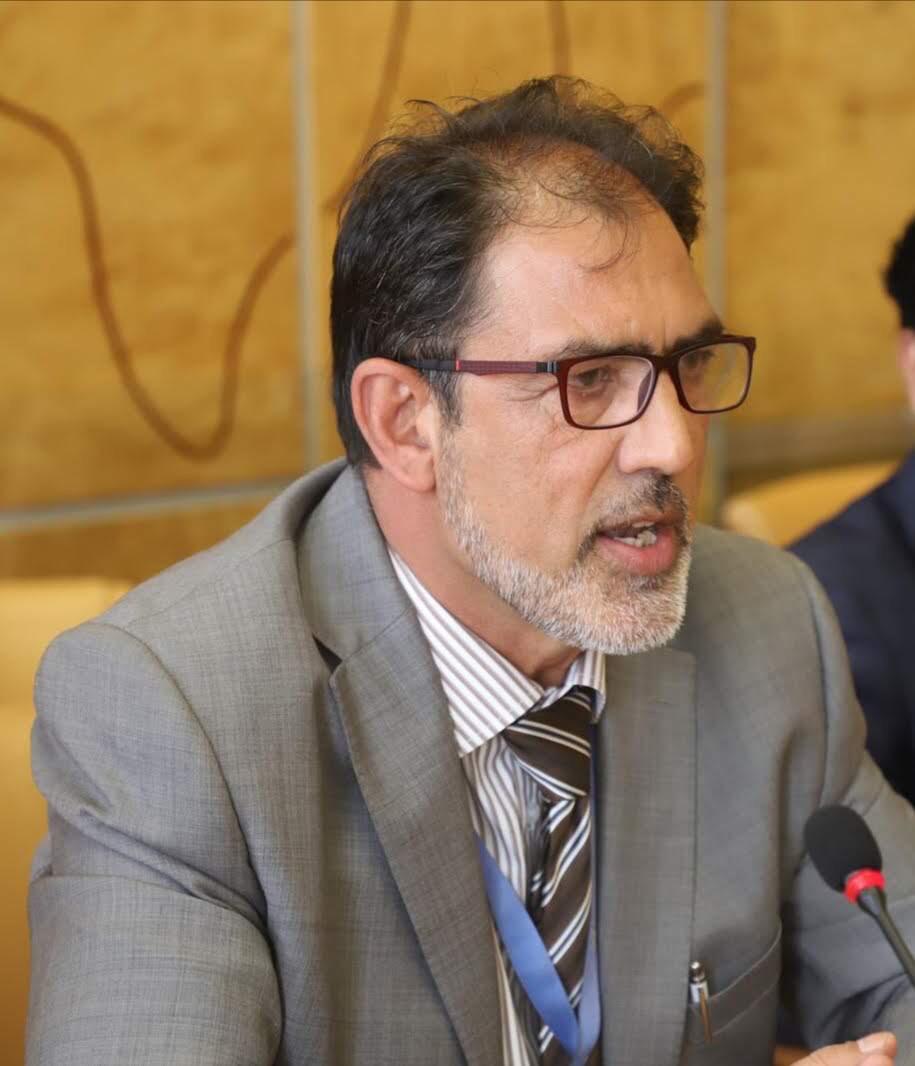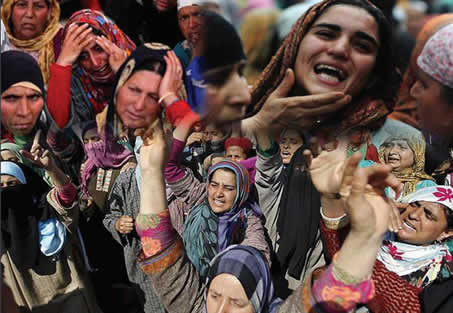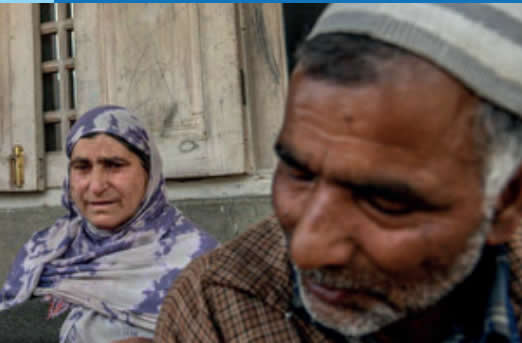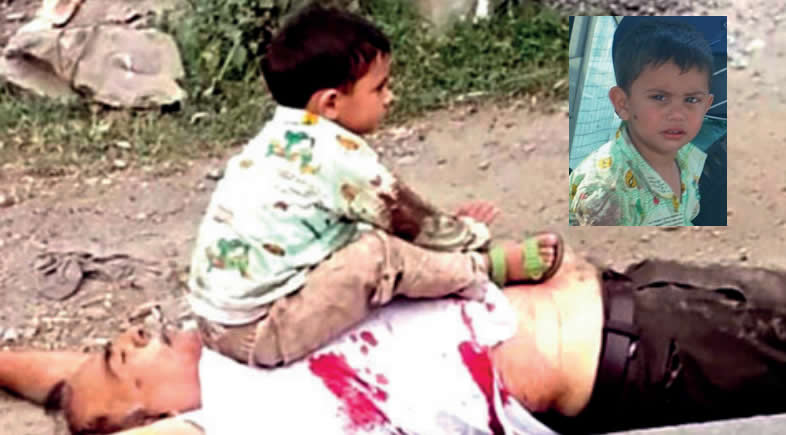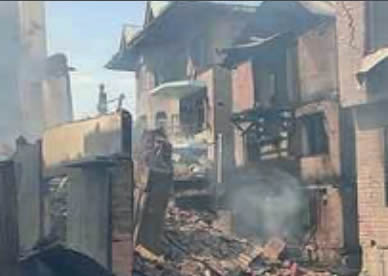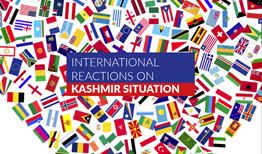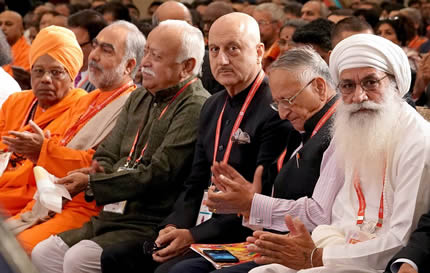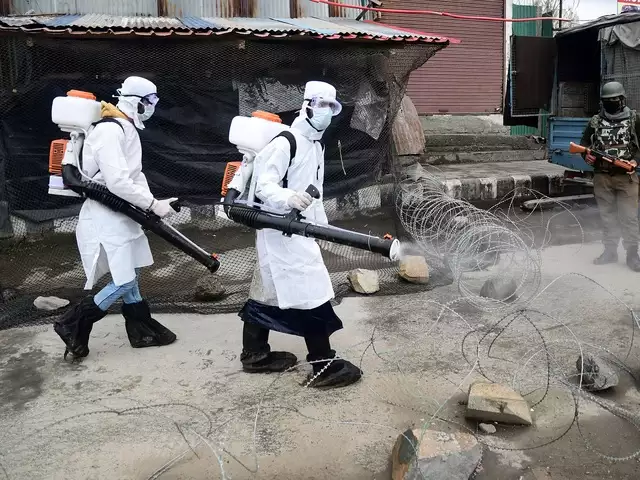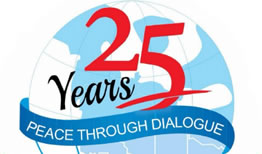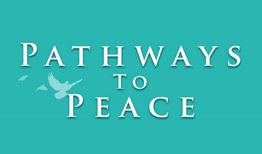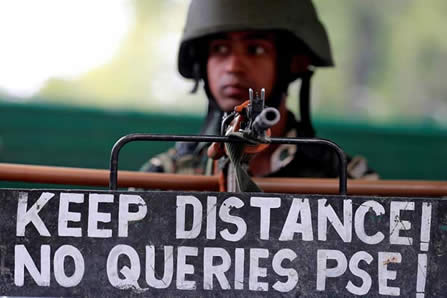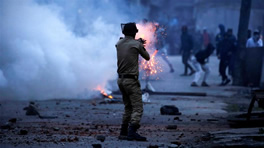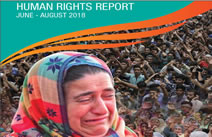Human Rights Report - SEP To DEC 2020
The abysmal situation in the Indian held territory of Jammu and Kashmir has always been a matter of great concern for the global rights watchdogs, who have time and again raised alarm over the gross and systematic violations of human rights being committed with impunity by the Indian ‘security forces’. However, the political and human rights situation in the region has stooped to a new low after the Indian government stripped the region of its ‘autonomous’ status on 5 August 2019. The imperialistic decision rightly criticized by independent observers as an act of colonialism pushed Indian occupied Kashmir to a quagmire of uncertainty and chaos. It was for the first time in the region’s turbulent history that a population of over 14 million was put under a severe military clampdown coupled with a communication blockade that continued unabated for more than one and a half-year. The dissolution of the state and reducing its status from that of a state to a union territory and bringing it under Delhi’s direct control was an atrocious assault on the rights of people that has inflicted terrible psychological trauma on the people of Kashmir.
The actions taken by the Indian government in violation of Security Council resolutions, the Charter of the United Nations and international law have further aggravated the rights situation in the region as during these turbulent times there has been no letup in the state violence, which continued to take heavy toll on physical and mental health of the already terrorized and traumatized population. The year saw a massive upsurge in the incidents of state-violence that has resulted in the death of hundreds of innocent civilians in particular the youth who were killed during cordon and search operations (CASO) and fake encounters staged by the Indian forces and its secret agencies.
Apart from deaths, the extrajudicial killings, enforced disappearances, torture, harassment of the civilian, arbitrary arrests of youth, persecution of political leaders, ban on rights organizations and a witch hunt against dissenters especially the rights activists, media houses and journalists at the hands of occupation authorities made an already bad situation even worse. Whereas essential fundamental freedoms such as peoples’ right to access to information, the right to education and proper healthcare remained severely restricted during the past two years.
During this period of time Internet services remained largely suspended in the region. The information blockade was imposed at a time when Kashmiris were caught between the conflict and coronavirus. Access to information and conversation through social network platforms such as Facebook, Whatsapp and Twitter was banned at a time when people needed it the most especially during the epidemic. The year-long siege and suspension of economic activities for an indefinite period of time led to severe economic meltdown, which is being widely perceived as a deliberate attempt on the part of the BJP government to render Kashmiris economically crippled and dependent on the Indian state.
Along with abrogation of Article 370 and 35-A, the imposition and enactment of a regime of new laws especially the redefinition of state’s domicile law stoked fears of demographic changeover in the region. And issuance of PRCs (permanent residence certificates) to over a million outsiders (non-state subjects) by the occupation authorities have further accentuated the contours of the Indian government’s settler colonialism policies that as a matter of fact pose a serious existential threat to the majority community that after 5th August 2019 feels completely alienated, marginalized and robbed of rights and its distinct cultural identity.
The Kashmir Institute of International Relations (KIIR) has been closely monitoring and documenting human rights abuses being committed by India in occupied Kashmir.
The book in hand provides a chronological account of the incidents of violence that have taken place during the last quarter of the year 2020. It also provides an insight of the devastating impacts of the violence on the region’s fragile economy, education and healthcare system.
- Modi’s unilateral and illegal actions in IIOJK are parallel with Israel’s illegal actions in the occupied West Bank (Palestine) and this shows the Indian fascist government’s intention of turning Kashmir into another Palestine.
- Since August 5, 2019, Kashmir has suffered repeated disconnections of internet and in Dec 2020 it broke the record of the 17 months longest blackout by the so-called democratic state.
EXTRAJUDICIAL KILLINGS
The Kashmiris have been facing continued oppression including so-called cordon and search operations and fake encounters. The toxic Hindutva ideology of RSS & BJP has resulted in systematic targeting of Kashmiri youths through extra-judicial killings. According to data provided by the Kashmir Media Service, 95,723 civilians, including women and children, from Jan 1989 to Dec 2020, 305 civilians since Aug 5, 2019, and 263 civilians in the year of 2020 have been killed by the Indian Army in IIOJK.
India has been continuously engaged in a violation of the 2003 ceasefire Agreement with Pakistan and targeting civilians who are living on the Line of Control. In 2020, India has killed 25 people and injured 200 people by committing more than 2,700 ceasefire violations.
Meenakshi Ganguly, South Asia director at Human Rights Watch said “Security forces have long operated with impunity in Kashmir, and past army investigations have been more focused on shielding those responsible for abuse than providing justice. There can be no end to the cycle of violence in Kashmir if security forces are not held accountable for their past and current abuses.
LAWAYPORA ENCOUNTER

In a fresh act of barbarism, the Indian Army killed three civilians in a fake encounter in the Lawaypora area of Srinagar. The slain have been identified as Ajaz Ahmed Ganai and Athar Mushtaq Wani of Pulwama and Zubair Ahmed Lone of Shopian. The families of three youth claimed that they were students and left home to submit university forms. Kashmir Inspector General of Police Vijay Kumar admitted the Names of the trio killed in the ‘encounter’ were not in the ‘list of terrorists’.
- 95,723 civilians, including women and children, from Jan 1989 to Dec 2020, 305 civilians since Aug 5, 2019, and 263 civilians in the year of 2020 have been killed by the Indian Army in IIOJK.
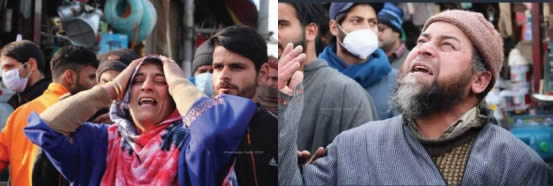
ILLEGAL DETENTION
Impunity for human rights violations and inaccessibility of the right to justice are among the main challenges facing the people of Jammu and Kashmir. The draconian laws in IIOJK i.e. Armed Forces Special Powers Act, 1990 (AFSPA) and Jammu & Kashmir Public Safety Act, 1978 (PSA) guarantees the immunity to the Indian troops/Army. Indian government detained more than 70 Kashmiri political leaders and activists in Kashmir after local elections held in Jammu & Kashmir in Dec 2020. Since Aug 5, 2019, at least 389 people have been detained under the Jammu and Kashmir Public Safety Act (PSA). In 2018 the government has omitted the proviso of Section 10 of PSA which allows police to transfer detainees, who are permanent residents of Kashmir, out of state. This caused problems for the families of detainees who have to spend too much money and time to meet their relatives.
According to data provided by the Kashmir Media Service, 161,330 civilians from Jan 1989 to Dec 2020, 14417 civilians since Aug 5, 2019, and 2958 civilians in the year of 2020 have been illegally detained by the Indian Army in IIOJK.
- 161,330 civilians from Jan 1989 to Dec 2020, 14417 civilians since Aug 5, 2019, and 2958 civilians in the year of 2020 have been illegally detained by the Indian Army in IIOJK
DEMOGRAPHIC CHANGES
The unilateral and illegal actions of the Government of India are direct violation of Security Council resolutions on Jammu and Kashmir, the Charter of the United Nations and international law, the Fourth Geneva Convention, in which, paragraph 6 of Article 49, clearly says “that the occupying Power shall not deport or transfer parts of its own civilian population into the territory it occupies.”
- Out of 33,000 who had applied for domicile certificates at least 25,000 people have been granted domicile certificates to non-Kashmiri residents which have raised fear of demographic changes in IIOJK.
POOR HEALTH FACILITIES
The internet ban, as well as the uncertain political situation, has catastrophic impact not only on the education & economy of IIOJK but also deteriorated the health sector of Kashmir. Where the world is fighting together to mitigate the deadly impact of COVID19 and spreading awareness without causing panic, doctors in J&K are fighting COVID-19 without a full library of resources. The absence of reliable internet connectivity created a space for misinformation, such as fake UNICEF memos, to spread. In such circumstances, telemedicine and online video consultations are impossible which further threatens the already weak and limited medical services in the region.
A stringent lockdown in J&K under military command & control allowed the Indian fascist government to surreptitiously scrap its special status in August 2019. In early April 2020, the Indian government announced a new domicile law for Jammu and Kashmir. Out of 33,000 who had applied for domicile certificates at least 25,000 people have been granted domicile certificates to nonKashmiri residents which have raised fear of demographic changes in IIOJK. The Modi government issued the new domicile law one week after governmentimposed countrywide lockdown. The purpose of lockdown amid lockdown was to avoid any public outrage and to make their grievances inaudible. IIOJK is in danger of being colonized by the Modi regime through Indian illegitimate actions. The indigenous Kashmiris are losing their political and cultural identity, their rightful demographic majority and ownership of their properties in their own homeland.
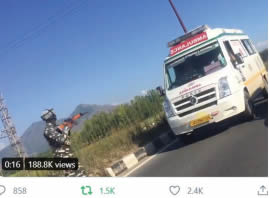
A Paramilitary trooper stops an Ambulance
The pandemic has brought unprecedented challenges for doctors and health facility providers in Kashmir. According to the World Health Organization recommended doctor-patient ratio is a minimum of 1:1000 but in J&K the ratio is 1:1,658.
- The seventeen months internet blackout has become the longest communications blackout in the history of any democracy
Another problem with healthcare in Kashmir under lockdown exceeds medicine shortages. Medical stores in Kashmir have only filled half of all requested medicines. Due to the communications blackout, medical stores cannot effectively communicate with dealers and medication suppliers.
- According to the World Health Organization recommended doctor patient ratio is a minimum of 1:1000 but in J&K the ratio is 1:1,658.
The lockdown has not spared mental health services in the region either. The doctors closed the counseling centers for treating depression, anxiety, trauma related disorders that have afflicted Kashmir due to military lockdown. Furthermore, hospitals in Kashmir are equipped with a mere 93 ventilators for a population of around eight million.
Jammu and Kashmir is facing a deficit of around two thousand nurses in different hospitals and health centers. The gagging of health professionals not only threatens their lives but also weakens the state’s ability to understand the crisis and control it efficiently.
Related Reports
